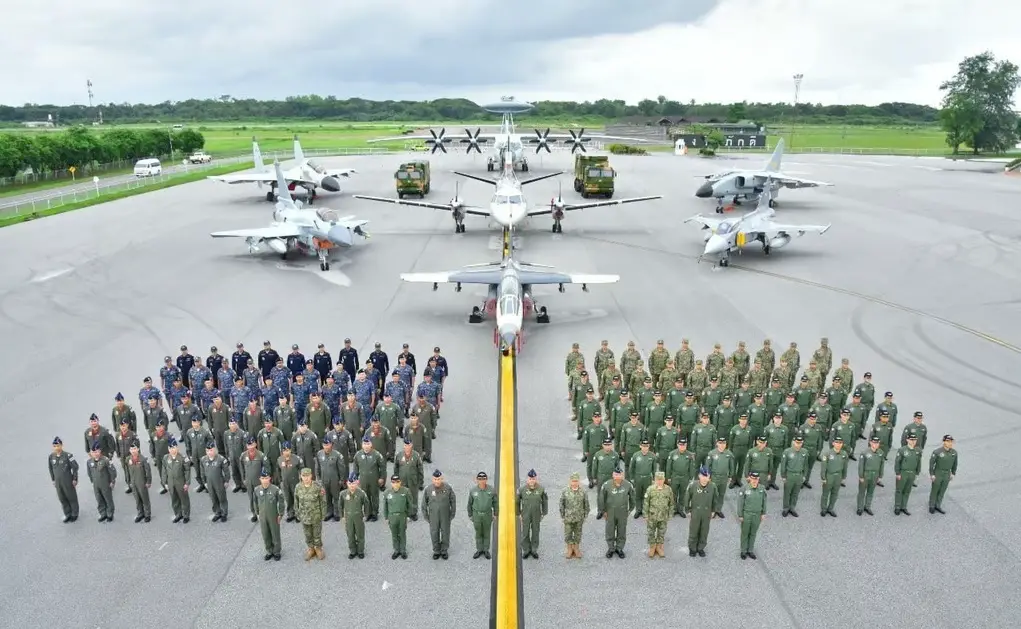The People’s Liberation Army Air Force (PLAAF) of China has deployed several of its key military aircraft to Thailand in preparation for the Falcon Strike 2024, a joint air force exercise aimed at enhancing defense ties between the two nations. Scheduled to take place from August 18 to August 29 at Udorn Royal Thai Air Force Base (RTAFB), the drill signifies a continued effort to foster deeper cooperation in military aviation and bolster mutual combat readiness. In the days leading up to the exercise, all Chinese forces participating in Falcon Strike 2024 successfully arrived at Udorn RTAFB. The PLAAF has contributed a variety of aircraft to the drill, including Y-20 large transport planes, J-10C and J-10S fighter jets, and JH-7A fighter bombers. These platforms represent some of China’s most advanced air transport, air superiority, and ground attack assets. The J-10C, in particular, is regarded for its air-to-air combat capabilities, while the JH-7A provides significant air-to-ground striking power.
This joint exercise between the Royal Thai Air Force (RTAF) and the PLAAF represents the seventh iteration of the Falcon Strike series, a recurring event that began in 2015. While it was temporarily halted due to the COVID-19 pandemic in 2020 and 2021, the exercise resumed in recent years, reflecting a sustained commitment to defense collaboration. During the drills, both nations will conduct various combat scenarios, including confrontational exercises between fighter jets. These exchanges are expected to enhance both sides’ tactical capabilities and deepen mutual trust between their air forces. Thailand’s RTAF is expected to field the Saab JAS 39 Gripen, a highly maneuverable, multirole fighter jet of European origin that is equipped with modern avionics and weapon systems. Last year, the Gripen was used instead of the US-manufactured F-16, indicating Thailand’s flexibility in selecting its aerial assets for joint exercises. This year, the deployment of helicopters by China also highlights the role of special operations forces in the drill. These forces are expected to engage in aerial assaults on strategic ground targets, simulating attacks on enemy airfields, air defense installations, and command centers.

While precise details about the aircraft and helicopters involved have not been fully disclosed, observers expect the participating Chinese forces to showcase their latest aviation technologies. Previous editions of Falcon Strike featured high-performance platforms like China’s Shaanxi KJ-500 airborne early warning and control aircraft, alongside fighter jets such as the J-11B. Similar to the 2023 exercise, Thailand may also deploy its Alpha Jet and Saab 340 airborne early warning aircraft in a complementary role to the Gripen fighters. Falcon Strike 2024 is not solely about enhancing tactical proficiency; it is also a reflection of broader regional security concerns. Southeast Asia remains a region of strategic importance due to its proximity to vital sea lanes and potential hotspots. Through these drills, China aims to consolidate its defense relations with neighboring countries like Thailand, projecting influence and ensuring that its military is prepared for various regional contingencies.
The People’s Liberation Army’s involvement in such international drills not only showcases its operational capabilities but also fosters goodwill and trust with its regional partners. For Thailand, the Falcon Strike drills offer an opportunity to refine its military capabilities and learn from the operational practices of a major military power like China. The exercise also serves as a platform for both nations to demonstrate their commitment to regional stability. With rising geopolitical tensions in the Asia-Pacific, including disputes in the South China Sea, these exercises underscore the importance of collaboration and preparedness in safeguarding national security. As the seventh iteration of the Falcon Strike series unfolds, it stands as a testament to the growing defense cooperation between China and Thailand. The drill is poised to reinforce strategic ties, ensuring both nations are better equipped to handle security challenges in the region. Through continued military engagement, the two countries contribute not only to their own defense readiness but also to the broader stability and security of Southeast Asia.













